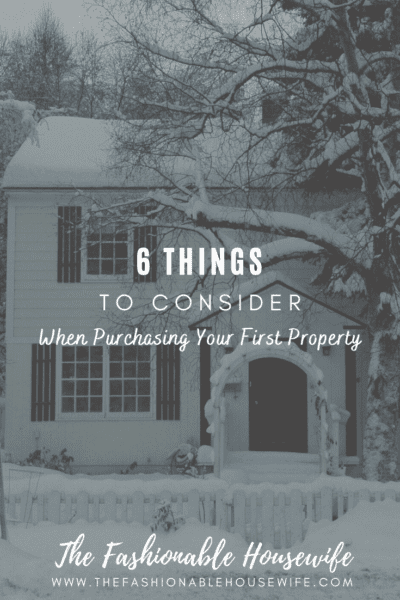
Acquiring your first property comes with a thrilling feeling. However, there are factors you ought not to neglect unless you intend to spend your time and finances on repairs and legal battles. Fortunately, a simple probate insurance policy can help to put unforeseen problems to rest.
In the words of Comedian Matt Wohlfarth, for instance, “you know what they say, where there’s a will, there’s a family fighting over.” Following this comment, you can tell that you need an excellent probate insurance administration to protect your first property against family feud.
This article is informing you now of some of the overlooked factors that can attract unrest and upheaval, thus, keeping you from enjoying your first property. To protect yourself, however, below are 6 things to consider when purchasing your first property:
- Prevent Property Restrictive Covenant
A restrictive covenant is a rule that governs your property deeds and that determines how you manage your property. Property restrictive covenant is still common and enforceable in the UK and beyond. Fortunately, your canvasser can take out restrictive covenant indemnity that protects you against the rule of the covenant.
Although you have acquired your first property, a covenant limits what you can do with your property and you are not expected to breach the covenant. For example, you may not alter a building extension, attach substantial structures to the property, or run a business of any kind on the property.
- Outdoor Space
Acquiring your first property is one thing, securing an ample space is another. If you secure that property at someplace with no breathing space, you would be forced to see your investment as a “waste”.
So, instead of serving yourself in a restless state of mind, get a location with astounding comfy. It should be such that you find it seamless to cruise in with your vehicle without screaming at the next-door neighbour to remove obstacles from the way.
Also, it should be such a place where you store machinery without having difficulties exploring the ambience. Besides, a stuffy outdoor attracts not just poor ventilation, but pests.
- Serenity/Security of the Neighbourhood
Before you pay for your first property, learn about the eco-friendliness, serenity, and security of the neighborhood. If it is such that it is polluted, erosive, airless, problematic, and abandoned, you want to give it a second thought.
Nevertheless, what you intend to do on the property should be a major determinant. Assuming you want someplace for a warehouse, you know you need an area with robust security.
If you find it difficult to determine the serenity and security of the area, a simple survey should do. Nobody wants a property where their stuff would go missing daily like it is a tradition.
- Round-the-Clock Mobile and Internet Access
Of course, you cannot question the importance of having undisturbed mobile internet access. The location you choose for your first property must be adorned with fast internet, otherwise, it is not a place for you in this 21st century.
Regarding access to the internet, you have to check the available broadband and measure the download speed it offers. The average download speed, according to Business Insider, ranges from 12-25 Mbps. Basic service, however, goes from 3-8 Mbps.
If the internet speed goes below the basic 3Mbps, it should not go below 1Mbps. Otherwise, you blame the innocent service provider.
- Ageing of the Roof
Before you acquire your first property, do not neglect to inspect the roof. An ageing roof is never accommodating, and you may have to hold water leakage with buckets.
While longevity of roofs can depend on several factors including the hostility of the environment, ventilation, and the quality of the installation, the average lifespan can last as long as 40 or 50 years.
If the roofs look aged, you should not buy the property, unless you are willing to cover the cost of replacement. Of course, we would not say “repairs”, because it will spoil faster.
- Lender’s Preference
Some properties are high-risk; thus, lenders would typically avoid lending on such properties. If you must get the lender to approve the loan, you need a property you do not have to overspend on repairs.
Of course, if you spend a huge amount to get your first property up to standard, you might have difficulties paying off the loan. For example, if a property was erected with substandard, it discourages a lender that believes you might be tempted to spend all of your money on repairs.



